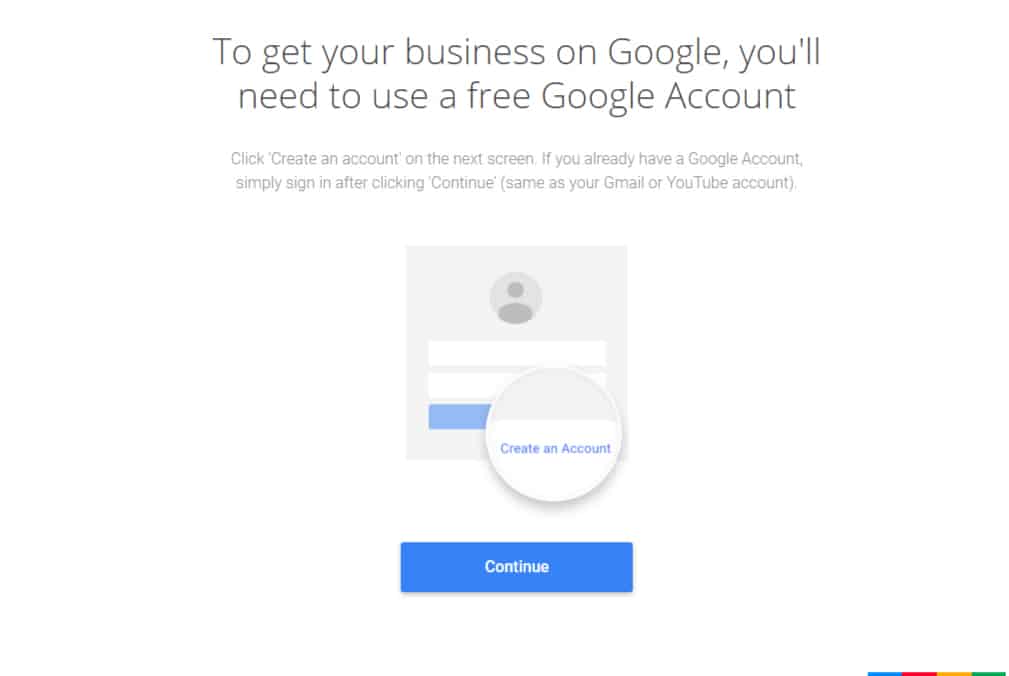How Local SEO Helps Attract Local Australian Customers
We’ve talked extensively about SEO in the past, we’ve defined it, gone through some top tips, and even some myths, and we’ve even covered the costs of SEO in Australia.
Have we ever specifically talked about Local SEO and how it is different to the other Search Engine Optimisation strategies? Maybe, we couldn’t find a good enough post in our Archive so here’s a fresh one.
Read on below how Local SEO can help you attract more customers to your Australian business.
What exactly is Local SEO?
Local SEO strategy is widely used in online business marketing in the recent few years.
The local search engine optimisation services are much different from your average SEO campaign and have the capability to turn the results upside down in no time.
With the help of local seo services, businesses can promote their products and services to customers in their area whenever users search for relevant keywords. Local SEO technique makes use of the major search engines (Google, Yahoo, and Bing) and various business directories (Yelp, Hotfrog, Superpages, Yellowpages, etc.) to improve the visibility of your business in the Search Engine result pages.
Local SEO helps you gain the relevant Search Engine visibility and quickly starts to attract potential customers towards your products and services.
The implementation of local SEO, however, can be quite tricky. As Google is putting more emphasis on location-based search than ever, now is high time to analyse your current local SEO strategies to check whether if they are giving results or should you take further actions to do your local SEO work.
There are many things that you can do to attract the local customers. Let’s jump onto it.
Accuracy and Consistency In Your NAP
NAP stands for name, address, and phone number.
The NAP information displayed on your websites and different social media sites should be highly accurate. According to a survey conducted by Moz, NAP affects the search results by 21 percent.
The accuracy of NAP plays a critical role in local search engine optimisation. If you accidentally made some typo in your NAP (for example, you cited your office address wrongly), then chances are directories will register your business inaccurately, and your business won’t be listed in the top search results.
Consistency is another factor. The NAP has to be consistent across all the local directories, listings, and citations. Keep your NAP updated if you change the name, address or phone number of your business and update it everywhere it is listed.
Claim Your Business On Google My Business
Google My Business is the epicenter of your Local SEO efforts. This profile needs to be polished with as much information on it as it’ll allow you to put in.
It is tremendous the amount of information Google pulls from Google My Business (GMB) in order to seed listings to the Google Map Pack.
If you have a Google My Business Page, then it’s fine. If not, then you should set you your Google business page up ASAP. Do to that just use the following steps:
- Add a unique and a long description that includes links.
- Add a phone number to the listing.
- Choose the category for your business.
- Add opening and closing time of your business.
- Upload multiple photos.
- Add the business address that matches the address mentioned on your website and other directories.
- Get feedback from your customers.

Link Building
Unlike standard SEO campaigns, local SEO services depend much more on the external links from other websites that are relevant to your business.
Actively building links is frowned upon by Google but if done in a sustainable and strategic way, Link Building should most definitely be part of your SEO strategy.
For Local SEO you’re most likely just wanting the NAP citations we spoke about earlier.
On a more advanced level, getting links from websites that are local to you and which deal with the same businesses will give you an additional boost.
If you can, link on prominent business websites to legitimise your website with Google and to pick up on referral site traffic.
Sometimes you’ll need to pay these websites a small fee to host your content and links. In an ideal scenario, you can find yourself somebody to whom you can give your services to away for free, as opposed to paying.
On-Page Optimization Of Your Website
On-Page optimisation of your website or simply landing page plays a vital role in local SEO.
If you’re trying to rank high on Google for your particular keyword, and you’re not actively speaking about said keyword on your website, are you even trying to rank at all?
The point is, be speaking about your expertise like the seasoned pro that you are.
Ensure you’re seeing a clear and concise information hierarchy on your website, because in most cases that’s all On-Page SEO concerns itself with.
Obviously, you’ll need a website, to begin with.
Ask For Reviews
Google allows customers to leave feedback about your business. If your reviews are positive, and you are getting good ratings, then it would help your website be displayed on the top of the search results.
While also technically against Google Terms of Service, the reality is, hardly anybody is going to go out of their way to leave a you a 5-star review unless you blew them away, or you’ve prompted them to.
Remind your customers to leave feedback about your business. It will help separate you from those competitors who have none, or very little, reviews.
Social proof is super important.
Claim Yelp Listing
While it doesn’t get the best of reputations, it will still count towards your NAP citations, from what is known to be a very reputable website.
So, claim your listing on Yelp. Add a Yelp badge to your website. It will encourage people to review you on Yelp, which certainly can’t hurt.
Some sweet reviews on Yelp would help your website a lot.
If you have excellent services and products, then you are likely to get positive reviews. Google now considers your Yelp presence such as some reviews and how positive they are, before displaying the search results.
Increase Site Speed
Google has placed importance on site loading speeds for a long time.
It makes sense. Doesn’t it?
Google is there to look after website visitors and if those people are having to chug through a 20-second load time, noody is winning.
As a rule of thumb we say that you’re losing about 50% of your website traffic if your site takes 5 seconds to fully load. That’s not a lot of time.
Ensure you’re getting quality hosting that is local to your business. Don’t go with the cheap providers to save a few dollars, you’re shooting yourself in the foot by doing so. You’ll just miss out on customers who’ve decided to go to a site that will load within a respectable timeframe.
We’re aiming for 2-3 seconds load time.
Add Images For Searching
Adding images to your website can have a huge effect on your site.
It changes the way how your site is perceived. Adding interesting images relevant to your business would be a significant advantage when it comes to local SEO.
The search engines can not crawl images without any alt tags, so make sure there are alt tags for any meaningful image on your pages you’re trying to rank.
If Google knows how to find you, it can start sending customers your way too.
Just be sure to compress images down. Uploading high-resolution photos directly from your iPhone or photographer will mean you’re blowing out your load speeds again.
Keep Your Site Mobile Friendly
Did you know most people have mobile phones these days? Crazy, right?
Well, these people are using their mobile to visit your website, and they’ve been doing so for years.
So much so that Google has decided to rank you based on the mobile version of your website, and no longer the desktop version.
Those are serious implications for companies who are looking for new customers from online traffic, but are still sitting on a non-mobile friendly website.
Responsive design starts from the ground up. Make sure your web designer is delivering a website that’s built for mobiles first. This means building modules that are also visible on the smaller screens.
Embrace Local Content Creation
Creating content that resonates with your local audience is crucial for Local SEO success. Start by identifying local events, news, and issues that matter to your community. Then, craft blog posts, videos, infographics, or podcasts around these topics. This not only boosts your local relevance but also positions your business as a local authority. For example, if you run a café in Melbourne, you might post about the best coffee beans available in Victoria, or sponsor a local barista competition and write about it.
Utilize Local Keywords
Incorporate local keywords throughout your website content, not just in the metadata and headings. These keywords should reflect the way local customers speak and search for your products or services. Tools like Google Keyword Planner can help you discover location-specific keywords to target. For instance, instead of targeting “best plumbing services,” aim for “best plumbing services in Brisbane” if that’s your service area.
Optimize for ‘Near Me’ Searches
With the rise of mobile search, “near me” queries have become incredibly popular. Ensure your website and content are optimized for these searches. Mention neighborhoods, landmarks, and local phrases naturally in your content to capture this audience. Also, ensure your site is mobile-friendly, as most “near me” searches are performed on mobile devices.
Engage with Local Communities Online
Participate in local forums, Facebook groups, and other social platforms where your target audience spends time. Answer questions, provide value, and subtly promote your business without being spammy. This increases your visibility and helps build local backlinks organically.
Feature Local Customers in Case Studies
Create case studies featuring local customers or clients. This not only demonstrates your success and reliability but also increases local relevance. Share these case studies on your website and social media to attract more local customers.
Implement Structured Data Markup
Use structured data markup (Schema.org) to help search engines better understand the context of your content. This can include your business’s NAP details, opening hours, and even events or products. Structured data helps enhance your visibility in local search results and increases the chances of appearing in rich snippets.
Monitor Your Local SEO Performance
Track your local SEO efforts using tools like Google Analytics and Google Search Console. Pay attention to metrics like local search rankings, traffic from local searches, and conversion rates. This data will help you refine your strategy and focus on what works best for your Australian audience.
Summing Up
Well there you have, a few simple Local SEO hacks to get you ranking on the map pack and to start converting these into actual paying local customers.
Remember, Local SEO isn’t a one-off task but an ongoing effort. As Google’s algorithms and the local competitive landscape evolve, so should your strategies. Keep engaging with your community, updating your content, and monitoring your performance to stay ahead in the local search game. For businesses aiming to dominate the Australian market, tailoring your SEO practices to meet the unique needs of local consumers is not just beneficial; it’s essential.
As always, if you have any questions let us know via social media or by getting in touch.
